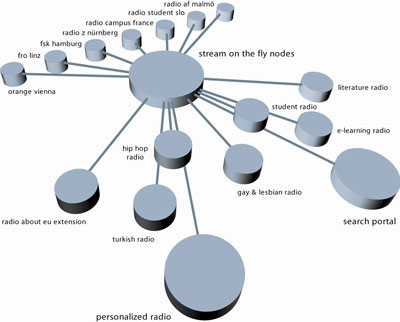|
|||
Agents and Middleware Applications from Seventeen European Projectsby László Kovács EUTIST-AMI (European Take-Up of Essential Information-Society Technologies - Agents and Middleware) is a cluster of seventeen application projects that are testing the benefits and potential of agent and middleware technologies applied in real industrial environments. The EUTIST-AMI initiative started in July 2001 with the participation of thirteen European projects, and later expanded to include four more projects. The cluster is funded by the European Union within the Fifth Framework Program and is coordinated by ENEA (Italy) in collaboration with LogOn (Germany), CSIC (Spain), SZTAKI (Hungary), DFKI (Germany) and Tokapi (the Netherlands). The aim of each project within the cluster is the implementation of agent and middleware technology-based applications in various industrial fields, in order to improve production processes. Each project represents an example in which these technologies are used to solve problems concerning different industrial areas. The cluster ensures the spread of information, knowledge and the results of the projects through effective dissemination activities. One of the projects, called 'StreamOnTheFly' (PVL (Austria), SZTAKI (Hungary) and Team Teichenberg (Austria)), supports radio stations broadcasting from and to anywhere in the world. A distributed digital library has been designed and implemented for the support of community radio stations. This framework, developed by the StreamOnTheFly project, provides a common background for preparation, archiving, exchange and reuse of radio programs and supports radio personalisation. The architecture is based on a decentralised and self-organising network, which uses a new common metadata schema and exchange format, and automatic metadata replication. Local, regional and Internet-based radio stations from all over Europe are expected to join the network.
The repository of the content (see Figure) is shared among a number of regional nodes. These exchange data frequently, and form a worldwide network with no central point that would be sensitive to attack or overload. The listener is able to tailor automated content packaging for personalised audio content, and may choose between web/WAP/GPRS access. Content selection is based on the options of notification, personal and collaborative filtering. It facilitates time-independent, personalised access to quality audio content that is enriched with audio-specific metadata. The aim of the 'MODA-ML' project (a project of an Italian consortium led by ENEA) is to streamline the textile/ clothing supply chain through the use of XML document exchange. This involves integrating legacy systems with human operators using the Internet. In this framework, large and small companies can be viewed as distributed resources in the overall process. MODA-ML focuses on the analysis of the most important (actual or potential) exchanges of technical, administrative or management information amongst producers of textiles and clothing manufacturers. A protocol for electronic exchange of information has been created based on the following:
The MODA-ML software and XML documents are freely available as a non-proprietary format for data exchange. Aiming to rapidly lead to a European standard for the exchange of information in the textile/clothing industry, MODA-ML is involved in the TexSpin Workshop activities, promoted by CEN (European Committee for Standardisation) and led by Euratex (European association of industry trading associations of the textile/clothing sector). The 'WAVE' project (CS-SI, APFA (France)) has developed a training simulator for welders. The aim of the 'Welding trAining in a Virtual Environment' project was to improve welding training efficiency by using distributed virtual environments. It consists of two modules. The welding platform is the main WAVE training tool. It is a robust motorised piece of furniture offering a large screen display system and equipped with genuine welding tools. These tools enable the trainee to simulate welding exercises and navigate within the interface of the platform. The other module is the control centre, which is the trainer's essential tool. It enables trainees to be monitored and supervised and their progress to be analysed during a training course. The WAVE server is the storage centre for teaching information. It contains the reference database that describes each exercise in detail, defines each user and keeps a record of all trainee results. The server ensures that messages are transported and managed between the welding platforms and the control centres. These three examples of the EUTIST-AMI projects demonstrate some of the possible industrial applications of the agents and middleware technologies. The three-year period EUTIST-AMI cluster will conclude in the summer of 2004. Link: Please contact: |
|||



